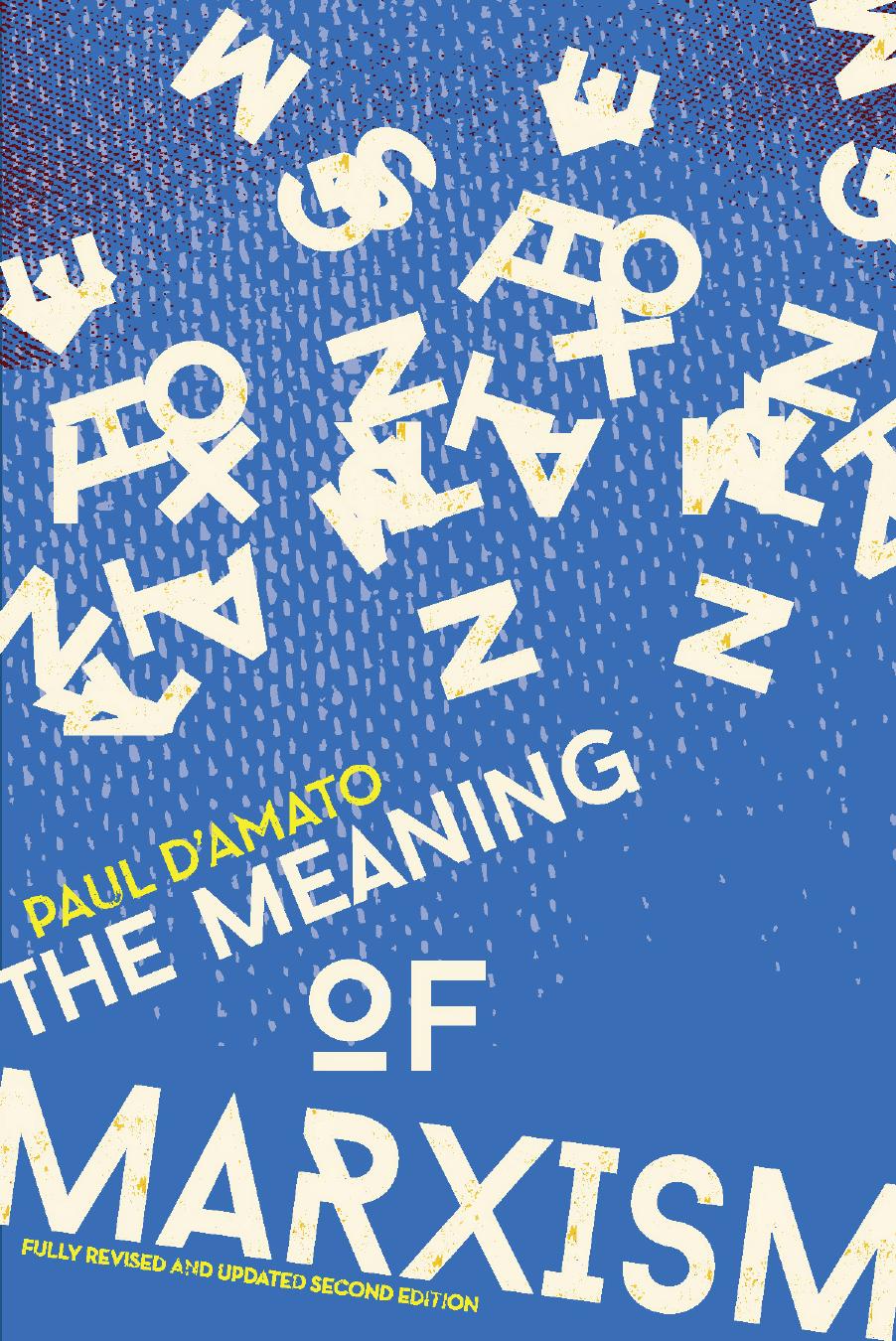The Meaning of Marxism by Paul D'Amato

Author:Paul D'Amato
Language: eng
Format: epub, pdf
Tags: Political Science, ebook
ISBN: 978-1-60846-051-9
Publisher: Haymarket Books
Published: 2014-11-06T16:00:00+00:00
The Myth of “State” Socialism
The single worst legacy of Stalinism was to reinforce the mistaken notion that socialism can be measured by the degree of state control of the economy. Capitalist societies with relatively strong social spending programs (at least in the past) and some state-run industries were considered moderately socialist—like Sweden. (I can’t count how many times I have been asked, “When you say socialism, do you mean Sweden?”) Societies with more complete state control of the economy—like the Stalinist Soviet Union before it fell, or Cuba today—were considered fully socialist, or “communist.”
The existence of a more or less expansive social safety net may indicate a strong history of class struggle and strong unions that at some point were able to extract important concessions from the employers. But concessions wrested from a capitalist state do not render that society socialist. Nor is the degree of state ownership a measure of socialism. State-run industries under capitalism do not operate as islands of socialism, but on the same principles of profit and loss as in the private sector. “A kind of spurious socialism has arisen . . . that . . . declares all state ownership . . . to be socialistic,” Frederick Engels wrote more than one hundred years ago. “Certainly, if the taking over by the state of the tobacco industry is socialistic, then Napoleon . . . must be numbered among the founders of socialism.”47
Even complete state ownership, Engels argued, is not socialism:
The transformation—either into joint-stock companies and trusts, or into State-ownership—does not do away with the capitalistic nature of the productive forces. In the joint-stock companies and trusts, this is obvious. And the modern State, again, is only the organization that bourgeois society takes on in order to support the external conditions of the capitalist mode of production against the encroachments as well of the workers as of individual capitalists. The modern state, no matter what its form, is essentially a capitalist machine—the state of the capitalists, the ideal personification of the total national capital. The more it proceeds to the taking over of productive forces, the more does it actually become the national capitalist, the more citizens does it exploit. The workers remain wageworkers—proletarians.48
Before Stalin expelled him from Russia in 1928, Trotsky waged a fight against the rising bureaucracy. But he clung to the idea that since nationalized property in Russia had been established as a result of a workers’ revolution, Russia could not be “state capitalist,” that is, a nation where the state exercised the same control over industry as the capitalists in other countries. Nevertheless, he could still say about the nationalized industries in Mexico in the 1930s that “the nationalization of railways and oilfields in Mexico has of course nothing in common with socialism. It is a measure of state capitalism.” Trotsky noted that in Mexico, union leaders were involved in the management of these state-run industries. This had nothing to do with workers’ control. The union leaders’ were expected to play the
Download
This site does not store any files on its server. We only index and link to content provided by other sites. Please contact the content providers to delete copyright contents if any and email us, we'll remove relevant links or contents immediately.
| Anarchism | Communism & Socialism |
| Conservatism & Liberalism | Democracy |
| Fascism | Libertarianism |
| Nationalism | Radicalism |
| Utopian |
The Secret History by Donna Tartt(19088)
The Social Justice Warrior Handbook by Lisa De Pasquale(12190)
Thirteen Reasons Why by Jay Asher(8909)
This Is How You Lose Her by Junot Diaz(6886)
Weapons of Math Destruction by Cathy O'Neil(6279)
Zero to One by Peter Thiel(5802)
Beartown by Fredrik Backman(5754)
The Myth of the Strong Leader by Archie Brown(5507)
The Fire Next Time by James Baldwin(5444)
How Democracies Die by Steven Levitsky & Daniel Ziblatt(5218)
Promise Me, Dad by Joe Biden(5153)
Stone's Rules by Roger Stone(5087)
A Higher Loyalty: Truth, Lies, and Leadership by James Comey(4963)
100 Deadly Skills by Clint Emerson(4925)
Rise and Kill First by Ronen Bergman(4788)
Secrecy World by Jake Bernstein(4753)
The David Icke Guide to the Global Conspiracy (and how to end it) by David Icke(4718)
The Farm by Tom Rob Smith(4509)
The Doomsday Machine by Daniel Ellsberg(4490)
